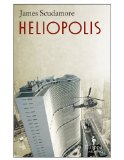Summary | Excerpt | Reading Guide | Reviews | Beyond the book | Read-Alikes | Genres & Themes | Author Bio

From Perón's glittering Buenos Aires to the rustic hills of Rio de Janeiro, from the haven of a Montevideo butchershop to U.S. embassy halls, The Invisible Mountain celebrates a nation’s spirit, the will to survive in the most desperate of circumstances, and the fierce and complex connections between mother and daughter.
On the first day of the century, a small town gathers to witness a miracle and unravel its portents: the mysterious reappearance of a lost infant, Pajarita. Later, as a young woman in the capital city—Montevideo, brimming with growth and promise—Pajarita begins a lineage of independent women. Her daughter Eva, intent on becoming a poet, overcomes an early, shattering betrayal to embark on a most unconventional path toward personal and artistic fulfillment. And Eva’s daughter Salomé, awakening to both her sensuality and political convictions amidst the violent turmoil of the late 1960s, finds herself dangerously attracted to a cadre of urban guerilla rebels.
From Perón's glittering Buenos Aires to the rustic hills of Rio de Janeiro, from the haven of a Montevideo butchershop to U.S. embassy halls, The Invisible Mountain celebrates a nation’s spirit, the will to survive in the most desperate of circumstances, and the fierce and complex connections between mother and daughter.
The Invisible Mountain, set in Uruguay, is an incisive examination of some of life’s trickier dilemmas, including when to place family at the forefront, and when to honor your own ideals even at the expense of others. The novel is also an enchanting new entry in the realm of contemporary Latin American literature. De Robertis brings Montevideo, Uruguay's capital, to life in scene after scene; considering the scope and depth of this little-known gem on the banks of the Río de la Plata, it should come as no surprise to learn the work was eight years in the making. It’s been well-worth the wait...continued
Full Review
 (649 words)
(649 words)
(Reviewed by Karen Rigby).
Uruguay (map
of South America) is home to about 3.5 million people about half of whom
live in or around the capital city of Montevideo. Montevideo was
founded by the Spanish in 1726 as a stronghold. Claimed by Argentina but
annexed by Brazil, the country won its independence in 1828 following a
500 day conflict.
Early 20th century administrations established widespread political, social, and
economic reforms; but a violent Marxist urban guerrilla movement named the
Tupamaros, launched in the late 1960s, led Uruguay's president to cede control
of the government to the military in 1973. Even though the rebels were
crushed by the end of the year, the military remained in control until civilian
rule was restored in 1985.
...

If you liked The Invisible Mountain, try these:

by Daniel Alarcon
Published 2014
The breakout book from a prizewinning young writer: a breathtaking, suspenseful story of one man's obsessive search to find the truth of another man's downfall.

by James Scudamore
Published 2010
By turns darkly humorous and poignant, James Scudamore’s Booker Prize-nominated novel is a highly original, surprising take on the rags-to-riches story.